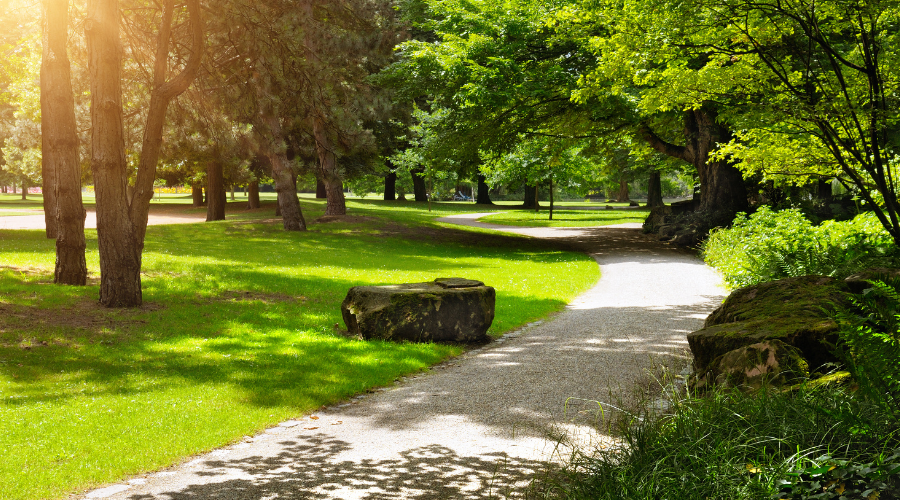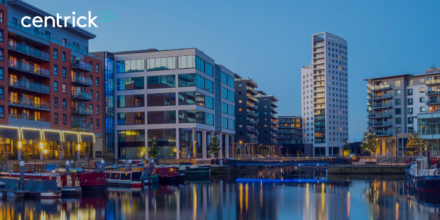What is mutual ground?
The term ‘mutual ground’ pertains to the plots of land in a development, no matter how small or substantial, that do not belong to any one household. The responsibility of these communal pieces of land therefore falls to other authorities to handle. These can include local authorities, residents, or companies such as Centrick who seek to manage the Mutual Ground spaces on behalf of landowners and residents. Many new property developments and complexes do not benefit from the help of a local authority to tend to their communal spaces, leaving the responsibility to others, often to the personal cost of residents.
What are the current mutual ground regulations?
When it comes to existing regulations pertaining to communal grounds maintenance, there are three primary aspects to consider:
Maintaining A Safe Working Environment
Any grounds maintenance works should be compliant with the Construction (Design and Management) Regulations 2015. This involves an extensive risk assessment of the site in question, and the communication of your health and safety observations to other parties, such as residents and contractors.
Keeping Sound Disruption To A Minimum
There are also regulations in place regarding sound levels when completing works in densely populated areas, as outlined in the Control of Noise at Work Regulations 2005. This not only protects workers from hearing damage, but aims to limit the disturbance to local residents and wildlife.
Minimising Chemical Hazards
When it comes to the use of chemicals to maintain communal spaces, mutual grounds workers must abide by the Control of Substances Hazardous to Health Regulations 2002. Pesticides, herbicides and fertilizers must be utilized in a strictly controlled environment so as not to negatively impact local residents, wildlife or ecosystems.
What are my legal obligations?
It is important to maintain optimal safety conditions when carrying out mutual ground maintenance. Overgrown areas, trip hazards, and excess waste aren’t just an eyesore that could impact the quality of life for residents and decrease nearby property values, but can pose a potential risk to life should a resident or neighbour fall or get injured.
What’s more, paved areas are particularly important as they provide space for pedestrians to avoid oncoming traffic. These spaces must be clear, visible and level so as not to pose a risk to any pedestrian, especially those using wheelchairs or pushchairs. Under the 2010 Equality Act, facilities should be clearly lit and accessible for those with diverse mobility needs
When it comes to grass which lies beside highways or roadside verges, the maintenance of these areas typically lies with the local authorities – if you fear that these parts of your neighbourhood are becoming overgrown, unsightly or dangerous, contact your local council to arrange a visit to amend this. You can find and contact your local council by entering your postcode on the government’s website.
Why is it easier to use a third-party to manage Mutual Grounds?
Using a third-party company to manage your mutual ground comes with an abundance of benefits, many of them being financial. Outsourcing to another company, that already has the equipment and skills to carry out work, can reduce the cost of purchasing expensive equipment and materials, and eliminates the need for staff training to complete grounds maintenance tasks. If the equipment breaks, or a staff member falls sick, your outsourced company will be able to replace these resources with no hassle and no extra cost to yourself. If any substantial or seriously problematic issues arise, it also pays to have a professional analyse your site and attend it regularly to spot any current or potential future issues.
What’s more, third-party management companies such as Centrick will likely have more knowledge and experience pertaining to the proper maintenance of your site. They will be well-versed in any upcoming or new laws and mutual ground regulations that could impact your service and are able to plan ahead to accommodate for these. Expert teams such as ourselves will also likely have all of the relevant accreditations that demonstrate their aptitude, putting your mind at ease and leaving you time to focus on the things that matter to you.
Looking to maintain your Mutual Ground with a company you can trust?
Enter Centrick, your partner in mutual ground, with decades of experience in transforming communal spaces! Our solutions are tailored and bespoke to you and your neighbourhood and can reinstate a sense of pride within your development that can contribute to better sales prices, longer tenancies and overall boosts to resident satisfaction. We’re also proud to be well-versed in all of the relevant regulations and legal obligations when it comes to mutual grounds maintenance, which leaves you with one less thing to worry about.
For more information on Centrick’s mutual grounds service and how it can benefit your development, contact us using the form below and a member of our team will get back to you as soon as possible:









